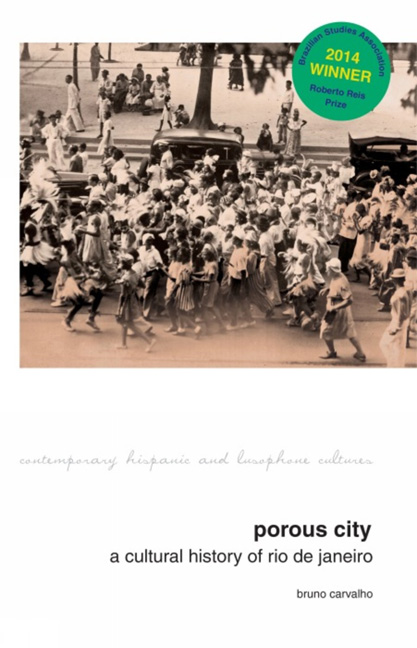Book contents
- Frontmatter
- Contents
- List of Maps
- List of Figures
- A Note on Translation
- Preface
- Introduction: In Search of Things Past: Mapping Rio
- 1 At the Centre of an Imperial Capital: Swamps, Yellow Fever, and Gypsy Parties
- 2 A Master on the Periphery of a Periphery: Popular Music, Streetcars, and the Republic
- 3 Beyond the Belle Époque: On the Border of a ‘Divided City’
- 4 Afro-Jewish Quarter and Modernist Landmark
- 5 Writing the ‘Cradle of Samba’: Race, Radio, and the Price of Progress
- 6 ‘It's (Mostly) All True’: The Death of a Neighbourhood and the Life of Myths
- Conclusion: The Future Revisited: Where Has the Past Gone and Where Will it Go?
- Acknowledgements
- Works Cited
- Index
Preface
- Frontmatter
- Contents
- List of Maps
- List of Figures
- A Note on Translation
- Preface
- Introduction: In Search of Things Past: Mapping Rio
- 1 At the Centre of an Imperial Capital: Swamps, Yellow Fever, and Gypsy Parties
- 2 A Master on the Periphery of a Periphery: Popular Music, Streetcars, and the Republic
- 3 Beyond the Belle Époque: On the Border of a ‘Divided City’
- 4 Afro-Jewish Quarter and Modernist Landmark
- 5 Writing the ‘Cradle of Samba’: Race, Radio, and the Price of Progress
- 6 ‘It's (Mostly) All True’: The Death of a Neighbourhood and the Life of Myths
- Conclusion: The Future Revisited: Where Has the Past Gone and Where Will it Go?
- Acknowledgements
- Works Cited
- Index
Summary
When the Italian architect Lina Bo Bardi arrived in Rio de Janeiro in October 1946 she used a single word to describe her initial impression: incanto (‘enchantment’).1 Few have remained indifferent to views of the city from the ocean or from above. Born in Rio, I often wondered what it might feel like to experience its nature, rhythms, or streets for the very first time. It was always easy, even as a child, to understand how the city's uncommon beauty and liveliness can seduce visitors. But throughout my early life and adolescence, in the 1980s and 90s, Rio seemed stuck in an endless downward spiral of violence, urban poverty, corruption, and dysfunctional government. Any sense of incanto had to be quickly shielded by nostalgia, a frustration for anyone born ‘after the fall’.
Rio's contradictions caused an impression on me very early on. I was first unsettled by enigmas that now seem almost mundane: in the city of my childhood, strangers with vastly different incomes and backgrounds hugged effusively in the stands of a football stadium. These same strangers might have also paraded side by side during carnival, engaged in casual conversation at the beach, or treated street children as if they were invisible. In a place where finding common ground can be so effortless, how could so many be comfortable with striking socio-economic inequities?
The naivety did not last long. It would eventually become clear that mobility and segregation sometimes coexist. Socio-racial mixture and cultural inclusion can abet other forms of exclusion, just as stratification does not preclude fluid boundaries. I would learn that the disenchantment of modern life has been a constant theme in the social sciences and in cultural theory. I also learned that Rio's history had no original sin, or fall, and that the paradisaical city of Bossa Nova songs never quite existed (at least not for all of its residents). Eventually, life abroad altered my relationship to a city that, at the same time, has never stopped changing.
Nonetheless, Rio's capacity to enchant kept surprising me. Over the past several years, I have seen countless colleagues, students, and friends react, much like Lina Bo Bardi, to their first experiences in the city. Sometimes I found myself wanting what they have. This book, written largely while living away, allowed me to reconcile disparate desires.
- Type
- Chapter
- Information
- Porous CityA Cultural History of Rio de Janeiro (from the 1810s Onward), pp. ix - xviPublisher: Liverpool University PressPrint publication year: 2013

